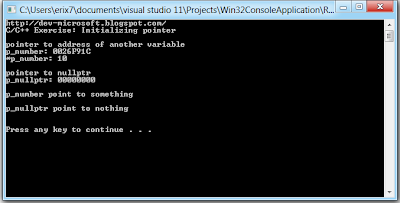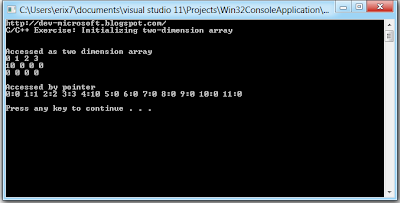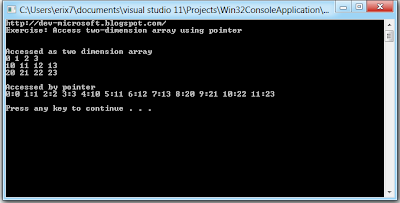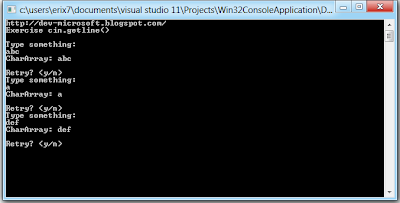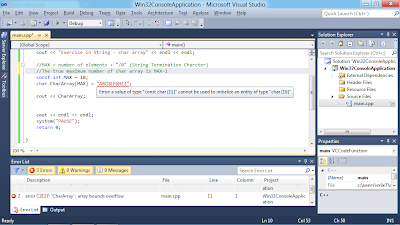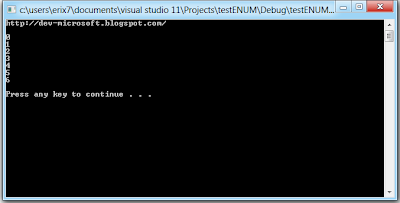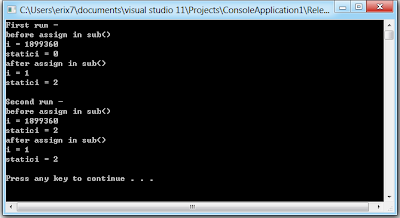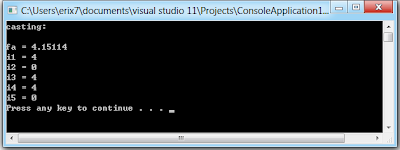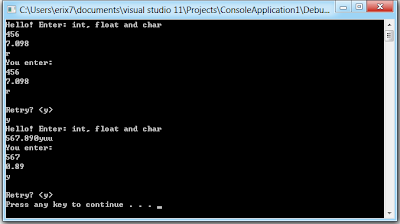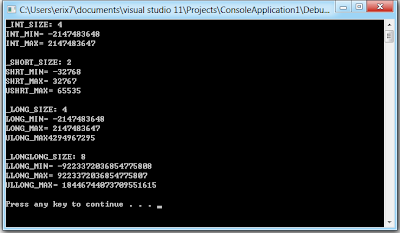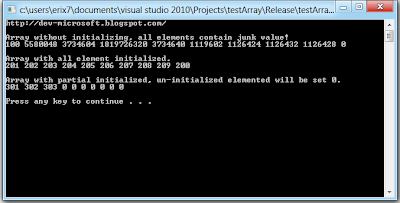
#include <iostream>
using std::cout;
using std::endl;
int main(){
int array1[10];
array1[0] = 100;
int array2[10] = {201, 202, 203, 204, 205, 206, 207, 208, 209, 200};
int array3[10] = {301, 302, 303};
cout << "http://dev-microsoft.blogspot.com/" << endl << endl;
cout << "Array without initializing, all elements contain junk value!" << endl;
for(int i = 0; i < 10; i++){
cout << array1[i] << " ";
}
cout << endl << endl;
cout << "Array with all element initialized." << endl;
for(int i = 0; i < 10; i++){
cout << array2[i] << " ";
}
cout << endl << endl;
cout << "Array with partial initialized, un-initialized elemented will be set 0." << endl;
for(int i = 0; i < 10; i++){
cout << array3[i] << " ";
}
cout << endl << endl;
system("PAUSE");
}



